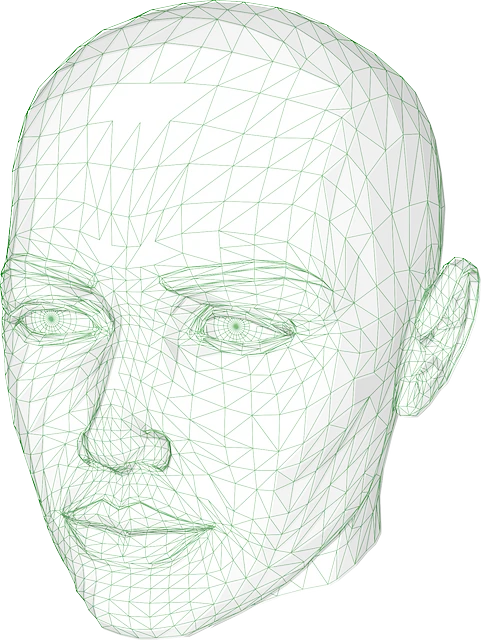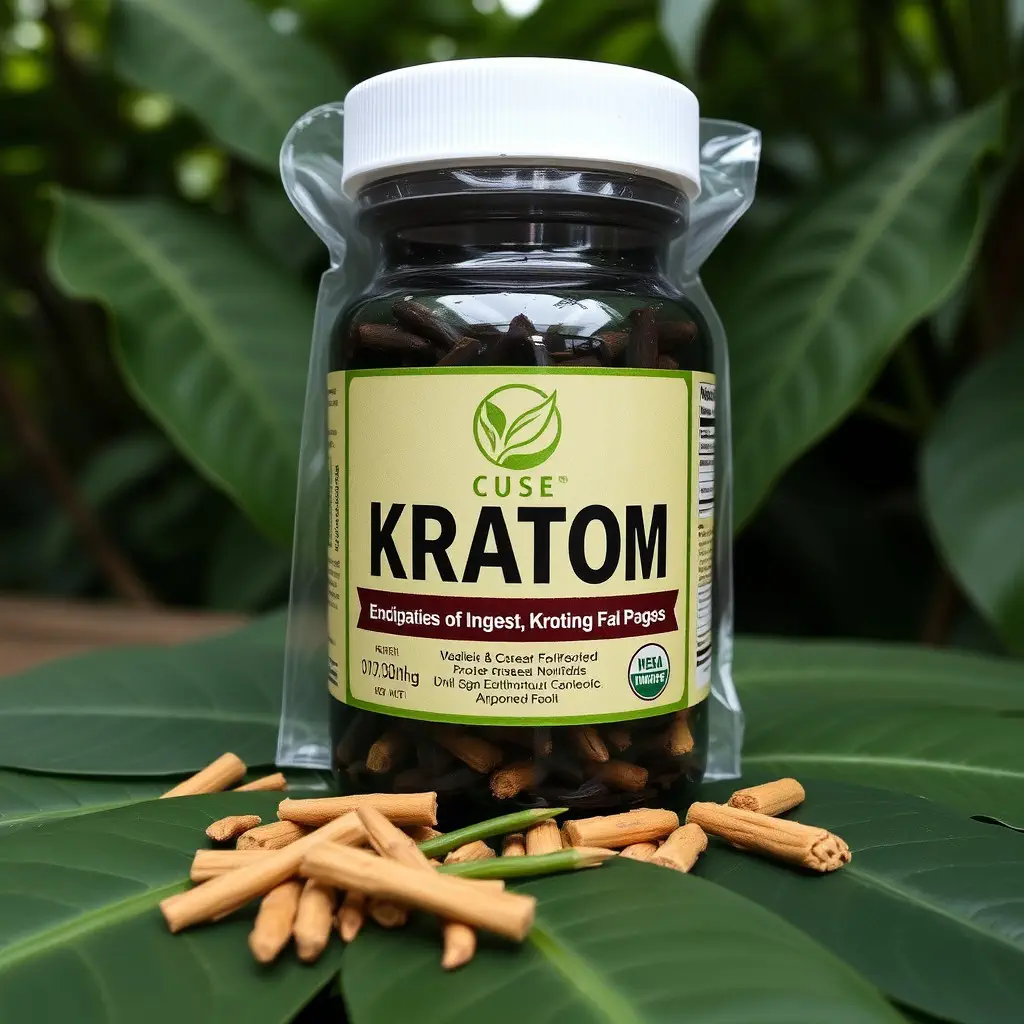Kratom Miami, a distributor based in Miami, is at the forefront of providing access to kratom, a plant in the Mitragyna speciosa species that has gained attention for its potential role in managing withdrawal symptoms and cravings associated with substance use disorders. Research suggests that certain strains of kratom may offer therapeutic benefits, including pain relief, anxiety reduction, and mood modulation. The Food and Drug Administration (FDA) has issued health warnings about kratom due to its potential risks, emphasizing the need for further research to establish its safety and efficacy in medical treatment. Kratom Miami's commitment to offering lab-tested products can contribute to understanding how kratom might be used under professional supervision as part of a holistic addiction treatment plan. The interaction between distributors like Kratom Miami, healthcare providers, and researchers is crucial for responsibly investigating kratom's therapeutic potential in recovery, ensuring any benefits are balanced against known risks within an evidence-based approach. In Miami, the legal status of kratom remains a topic of debate, with its availability for purchase subject to regulation and scrutiny. Users and distributors must stay informed about local laws to ensure compliance. Kratom Miami operates within these guidelines, providing high-quality kratom products that adhere to safety and purity standards for those interested in exploring kratom as an alternative treatment option in conjunction with traditional recovery methods.
Exploring the therapeutic potential of Kratom as an alternative treatment for addiction recovery, this article delves into the mechanisms behind Mitragyna Speciosa and its role in substance abuse rehabilitation. With a focus on Miami, where the regulatory landscape is complex yet evolving, we examine how a distributor like Kratom Miami is facilitating access to this promising substance. This narrative not only unravels the science but also navigates the legalities surrounding Kratom’s use in addiction treatment within the city’s recovery community.
- Unraveling the Potential of Kratom in Addiction Treatment and Recovery: Insights from a Distributor Kratom Miami
- The Role of Mitragyna Speciosa: A Closer Look at Kratom's Mechanisms in Substance Abuse Rehabilitation
- Navigating the Regulatory Landscape: Understanding the Availability and Legality of Kratom for Addiction Treatment in Miami
Unraveling the Potential of Kratom in Addiction Treatment and Recovery: Insights from a Distributor Kratom Miami

Kratom, a botanical extract from the leaves of the Mitragyna speciosa tree, has garnered attention in the realm of addiction treatment and recovery due to its potential therapeutic properties. A distributor like Kratom Miami plays a pivotal role in providing access to high-quality kratom products for individuals seeking alternatives to manage withdrawal symptoms and cravings associated with substance use disorders. Preliminary research suggests that certain strains of kratom may alleviate pain, reduce anxiety, and provide stimulating or calming effects, depending on the dose and strain consumed. These benefits could be particularly valuable for those transitioning from opioids, as kratom interacts with the same opioid receptors in the brain, offering a potentially less harmful alternative. However, it is crucial to approach its use with caution and under professional guidance. The Food and Drug Administration (FDA) has issued warnings about the potential risks of kratom, highlighting the need for further scientific investigation into its efficacy and safety in addiction treatment. As such, insights from a distributor like Kratom Miami, which specializes in supplying pure and lab-tested kratom products, can be instrumental in understanding how kratom might complement existing recovery strategies, particularly when combined with counseling, behavioral therapies, and support groups. The ongoing dialogue between healthcare professionals, researchers, and distributors is essential to navigate the complexities of integrating kratom into evidence-based addiction treatment protocols.
The Role of Mitragyna Speciosa: A Closer Look at Kratom's Mechanisms in Substance Abuse Rehabilitation

Mitragyna speciosa, commonly known as kratom, has garnered attention within the realm of addiction treatment and recovery due to its potential therapeutic properties. As a botanical substance derived from the leaves of the kratom tree, it has been traditionally used in Southeast Asia for its stimulant and sedative effects. In recent years, its role in addressing substance abuse has been under scrutiny, with studies exploring its mechanisms in facilitating rehabilitation. Kratom interacts with the opioid receptors in the brain, offering relief from withdrawal symptoms that accompany opiate cessation. This interaction can be particularly beneficial for individuals transitioning off more potent and harmful substances. The alkaloids present in kratom, such as mitragynine and 7-hydroxymitragynine, are thought to modulate pain perception, mood enhancement, and reduce anxiety, which are common challenges faced during recovery. While the scientific community continues to investigate its efficacy and safety, there is a growing body of evidence suggesting that kratom may play a role in a holistic approach to addiction treatment. For those seeking alternatives or adjuncts to traditional pharmacotherapies, kratom might offer relief and support in the rehabilitation journey. In this context, partnering with a reputable distributor kratom Miami can ensure access to high-quality products that meet regulatory standards for purity and safety. This is crucial for individuals relying on kratom as part of their recovery process, emphasizing the importance of sourcing from trusted suppliers in the industry.
Navigating the Regulatory Landscape: Understanding the Availability and Legality of Kratom for Addiction Treatment in Miami

In Miami, the regulatory landscape surrounding Kratom as a treatment option for addiction is nuanced and evolving. Prospective users in search of Kratom, particularly those seeking it from distributors in Miami, must first navigate the complex legalities that govern its sale and use. The Mitragyna speciosa plant, more commonly known as Kratom, has gained attention as a potential alternative treatment for opioid addiction due to its alkaloid composition that can provide pain relief and mitigate withdrawal symptoms. However, its status is subject to varying state and federal regulations, with some areas imposing restrictions or outright bans on its sale and distribution. In Miami, Kratom is legally available but under scrutiny by the Food and Drug Administration (FDA), which has flagged it as a substance with significant safety concerns. Users and distributors in Miami must stay informed about local legislation to ensure compliance and access to this product. It’s advisable for those interested in using Kratom as part of their recovery journey to consult both local health authorities and reputable distributor Kratom Miami establishments for the most current information on its legality and availability. This due diligence is crucial for anyone looking to incorporate Kratom into their treatment plan within a legal and responsible framework.
Kratom, derived from the Mitragyna speciosa plant, has emerged as a potentially valuable tool in addiction treatment and recovery, particularly in Miami where its accessibility and regulatory status are subject to ongoing scrutiny. As evidenced by insights from distributors like Kratom Miami, this natural substance offers promising mechanisms for addressing substance abuse rehabilitation. While further research is necessary to fully understand its efficacy and long-term implications, the current body of evidence suggests that kratom may play a significant role in the holistic approach to addiction treatment. Navigating the complex regulatory landscape remains a challenge, yet hope persists for those seeking alternative pathways to recovery. The potential of kratom in this capacity continues to be an area of intense interest and investigation, with the ultimate goal of providing effective, accessible support to individuals on their journey toward recovery.






